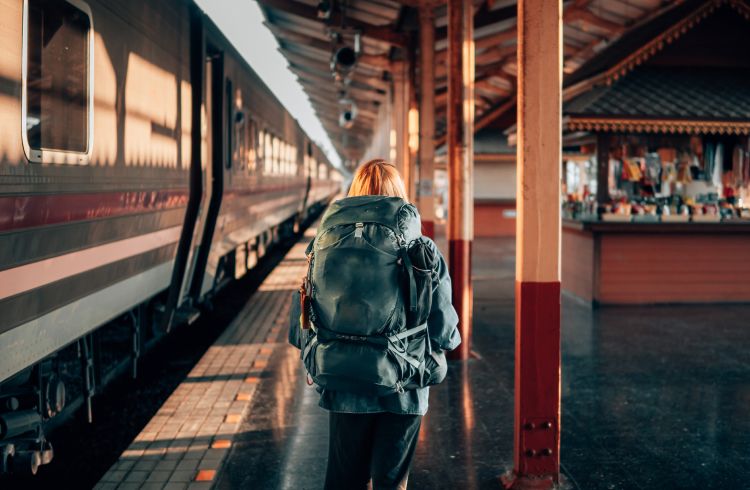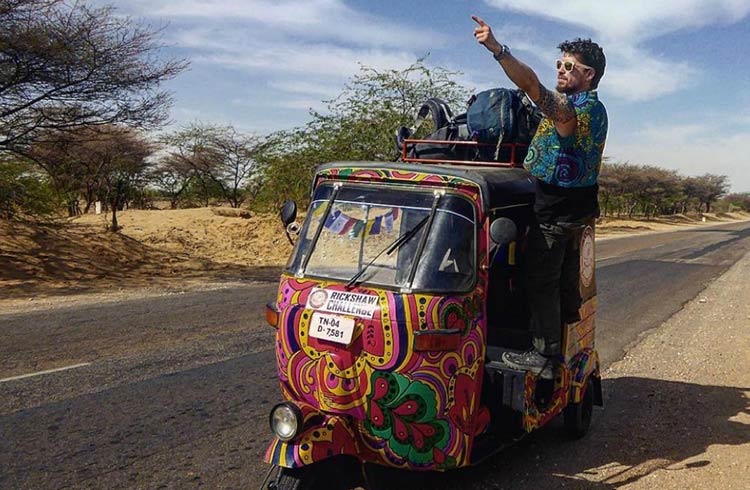8 Ways to Travel Cheaply in a Cost-of-Living Crisis
When it comes to travel, where there’s a will there’s a way – as these tips to traveling more affordably reveal.
 Photo © Getty Images/nomadnes
Photo © Getty Images/nomadnes
Just because we’re all trying to spend less money doesn’t mean you should have to stay home. When it comes to travel, where there’s a will there’s a way – as these tips to traveling more affordably reveal.
- Pinpoint your priorities
- Save on accommodation
- Bag a bargain
- Limit who travels
- Get money smart
- Eat and drink well for less
- Get around on public transport
- Get resourceful with activities
1. Pinpoint your priorities
Travel is one of life’s true pleasures, but we all travel for different reasons. Some of us are all about kicking back and enjoying a hard-earned rest when we’re away, while others see travel as a chance to go on an adventure. Reconnecting with family is a top priority for many, whether we’re traveling to see people we love or using travel to have some valuable time together. Thinking about the main reasons you like to travel is a great first step when it comes to reducing expenses – you can keep the things that matter most, and compromise on those that are nice to have but not nearly so important. Daily cocktails by the pool might have to go, for example, but a family bike ride to a local market could be worth spending money on for the shared experience and memories you’ll make while doing it.
2. Save on accommodation
Even backpackers are looking for more refined accommodation options when they travel these days, but it might be time to rethink your must-haves in favor of more affordable stays. Redefining what luxury means to you can help. What matters more: high-thread-count sheets and a bottle of champagne on arrival or an unforgettable opportunity that means you can get to know local people? Why not forego the luxury resort or hotel this time in favor of a humbler homestay, hostel, house swap or locally-owned guest house? That’s what we call authentic travel!
3. Bag a bargain
Saving a bundle before you leave home can make your trip feel far less financially stressful. Keep an eye out for great package deals and last-minute accommodation and tour bookings. Flights are better booked well in advance (fares tend to rise in price as the date of departure approaches), but we’ve found flights that leave on a Tuesday are often cheaper than those departing on other days.
4. Limit who travels
If not everyone in the family is excited about heading overseas, does everyone really need to go? It can make more sense to divide and conquer. Dragging a reluctant teenager along when they’d rather stay home, for example, can spoil it for everyone. Would it be the worst thing in the world for them to stay behind with a grandparent who’d welcome the chance to spend some one-on-one time with them? Just think of the savings!
5. Get money smart
Don’t wait until you get to the airport to exchange money for foreign currency – it’s the most expensive way to go. If you need to buy a popular currency such as US dollars, euros, pounds or yen, do it in the CBD of your own city before you leave – banks and money exchange bureaus are likely to have it in stock and offer a competitive rate. Less common currencies are often better bought once you get to your destination (but again, wait until you leave the airport). Also, keep in mind where you’re traveling from. If you’re coming from a country whose currency isn’t likely to be in demand, you may face a flat ‘no’ when trying to exchange money. Trying to exchange Australian dollars in Mexico or China, for example, may not go your way. Those with US dollars to exchange, however, are likely to have more widespread success. Shopping around online is an easy way to get the best conversion rate possible, and some online currency converters will load up a money card with local currency and deliver it to your door before you leave home – this makes fee-free withdrawals of local currency possible when you’re on the go.
If you’re tempted to travel without any actual local currency in hand, however, keep in mind that wi-fi (and power!) is known to be unreliable in some countries, ATM machines can be temperamental, and tipping in cash is always appreciated.
6. Eat and drink well for less
It’s easy to hemorrhage money on meals when you’re eating out three times a day and buying multiple drinks a day. An absolute must is to travel with a refillable water bottle that has an inbuilt filter. You’ll stay hydrated and save money (not to mention the planet) just by packing this one simple item. If you’re booking into a hotel, call ahead to see if they will include breakfast in your rate (you might be surprised how often they say yes). Self-contained accommodation is a good way to save money – shop at the local market for breakfast supplies, pack a picnic to take with you on a day out, and opt for simple evening meals that can be cobbled together with ease instead of eating out every night. If eating out is a must (we get it), seek out street stalls or locally owned, inexpensive restaurants (ask around to find out where locals like to go). Having a late breakfast and an early dinner every day is also worth considering to pay for one less meal a day. If the portions tend to be huge (we’re looking at you, USA), try ordering a side salad each and sharing a main – there’s no shame in reducing food waste.
7. Get around on public transport
Stay in one place for longer and get to know the local transit system. Many big-city train and bus systems offer discounts for 10 or more trips in a week. If you’re in a city popular with tourists, some bus companies also offer hop-on, hop-off deals with discounts on major attractions. If you’re heading to Europe, a Eurail pass that allows you to travel affordably by train to multiple countries is definitely the way to go.
8. Get resourceful with activities
If you’re looking to reduce the cost of activities when you’re away, all it takes is a little imagination – and you won’t have to compromise on fun. Getting out and about in nature can be positively restorative and will get those feel-good endorphins flowing. Go for a hike in a local reserve, or rent bikes, kayaks or scooters. Mix up the pace by exploring one day and chilling out the next at the beach or even a city park. Consider going your separate ways for the day before meeting up with your travel companions later – take a drawing class, explore a different neighborhood, spend a quiet day wandering around a spiritual site – do what fills your cup. If there’s a guided tour you like the sound of, chances are high there’s also a self-guided tour you could do for less or for free. It pays to get creative!


No Comments